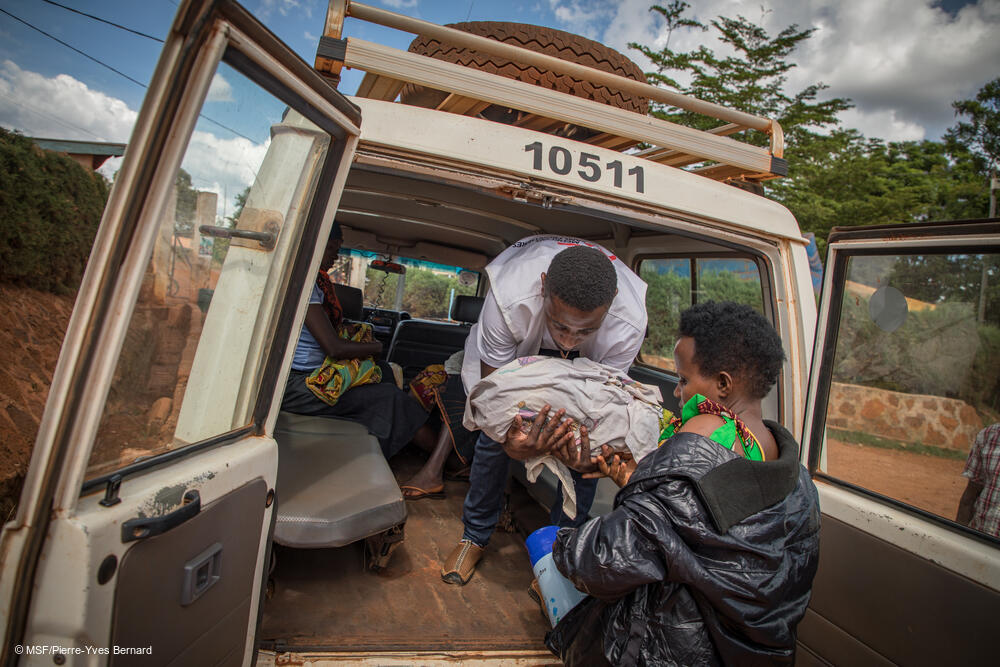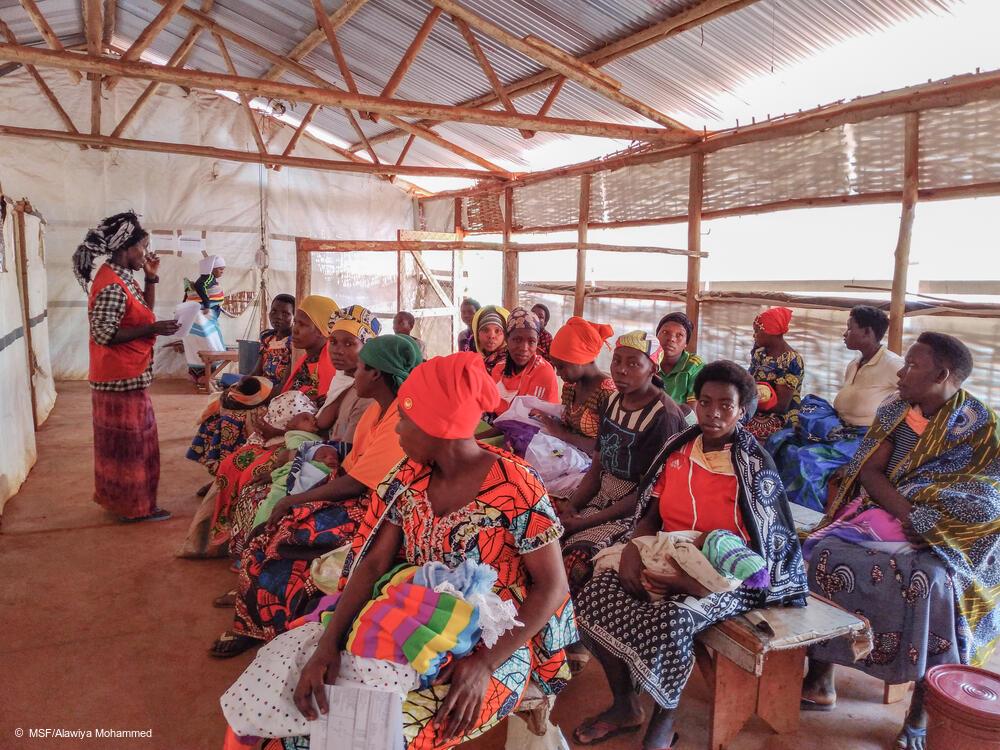“In our family, we have health problems and go to the clinic three or four times each month,” says Emmanuel Ndayishimiye, a Burundian refugee, living in the Nduta refugee camp in northwest Tanzania.
For five years Médecins Sans Frontières/Doctors Without Borders (MSF) has provided health services in the Nduta refugee camp. “The services we receive are really great, thank God. Since MSF arrived here, they have helped us so much,” says Emmanuel.
MSF first started working in Nduta in 2015, running an emergency cholera response that followed the arrival of thousands of Burundians fleeing violence in their county. People were arriving in high numbers every day, and the poor living conditions meant that the risk of diseases spreading was high.
MSF quickly built a temporary hospital to respond to urgent needs in the camp. However, as more refugees arrived, MSF expanded its medical services to reduce preventable deaths. Gradually, MSF also extended its health services to cover people living in nearby villages.
By 2017, MSF was running six health posts and a 150-bed hospital, providing comprehensive healthcare to refugees, including outpatient consultations, sexual and reproductive health, vaccinations, mental health counselling and referrals to the nearby district hospital in Kibondo. Hundreds of MSF staff worked around the clock to address the health needs of refugees and local communities, from midwives, nurses, counsellors and medical doctors, to a large network of community health educators.

A mother referred to the Kibondo hospital to deliver because of complications is brought back to Nduta refugee camp
Today, roughly 70,000 Burundians still live in Nduta, far below the peak of over 120,000 in 2017. MSF outpatient consultations have reduced dramatically, from an average of 34,632 consultations in 2017 a month to 18,953 in 2020. During these consultations, MSF staff treated malaria, diarrhoea, respiratory tract infections, urinary tract infections, skin and soft tissue conditions, neglected tropical diseases, eye diseases and gynaecological issues.
As the population of the camp has gradually reduced over the years, with many refugees returning to Burundi, MSF has adapted its medical services.
After five years of providing general healthcare in Nduta refugee camp, MSF recently transferred these activities to the Tanzanian Red Cross Society. This will allow MSF to focus on specialised and complex healthcare services with the aim of improving the quality of care for Burundian refugees and Tanzanian host communities. MSF will continue to run a 122-bed hospital and to facilitate emergency referrals.
“The Tanzanian Red Cross has a long history of providing healthcare to refugees in the region,” said Hassan Miyaki, MSF’s country representative in Tanzania. “We are now working to ensure a smooth handover, and will strive to continue our collaboration so that refugees and host communities can benefit from our complementary health services in the Nduta refugee camp.”
Malaria remains among the main diseases despite a tremendous reduction in the number of patients with malaria in the camp. MSF teams treated 11,779 patients each month with malaria in 2017, but this had fallen to just 2,500 by 2020.
The successful efforts to reduce malaria transmission in the camp are largely thanks to the integrated malaria control activities conducted by MSF teams. These include diagnosis and medical treatment, identification of high incidence areas, use of agents to kills mosquito larvae, distribution of mosquito nets, health education, and malaria mosquito surveillance and control. MSF will continue to focus on integrated malaria control activities and will aim to extend this programme to surrounding host villages as well.
